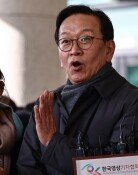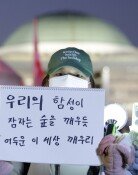We are not supposed to be swayed by external forces in diplomacy
We are not supposed to be swayed by external forces in diplomacy
Posted March. 05, 2021 07:17,
Updated March. 05, 2021 07:17
The U.S. government on Wednesday set forth a new roadmap in foreign affairs and security policy with a heightened level of measures against China. A 24-page-long official document titled “The Interim National Security Strategic Guidance” was published as the first official document in foreign affairs and security by the Biden administration since its inauguration. In line with this paper, the first speech by Antony Blinken as President Biden’s secretary of state declared China as the biggest geopolitical test of the 21st century. Secretary Blinken said, “Whether it's the adversarial aspects of the relationship, the competitive ones, or the cooperative ones which are there in our mutual interests, we have to deal with it from a position of strength.”
Although signs have apparently been shown of Washington increasing its pressure on China, it is worth noting that it officially gives top priority to its China strategy. As its predecessors have criticized China harshly on the presidential campaign trail but changed their tone once elected, many experts see that the Biden administration may at least soften the tone as well. Having said that, it reaffirmed its determination to follow the legacies of the former government’s offensive front, just as shown in the ratification process of its foreign affairs and security team.
The overarching topic of both the White House’s guide and Secretary Blinken’s speech is how Washington responds to China, although both of them deal with a variety of fields such the COVID-19 pandemic, climate change and economic recovery as top priorities in security strategy. The focus is put on repressing the rise of China when it comes to democratic restoration, alliance build-up and acquisition of technological leadership. Secretary Blinken said that Beijing claimed where Washington had been seated, being determined to restore the country’s leadership role. Washington’s guide also clarified that not China but the United States will play a key part in setting global agenda items.
What differentiates the Biden administration from its predecessor is how it carries out its policy. The Trump administration is characterized by one-off events full of political showmanship or unilateral approach such as tariff bombshells. It makes a stubbornly unilateral start and forces the rest to come with it. By contrast, the first thing that the Biden administration does is to group friends and foes and form a scrum to make others feel pressured to follow. Being sandwiched between Washington and Beijing, Seoul has until now been reluctant to decide whose side to take while peeping others to figure out the mainstream. Indeed, all such circumstantial changes test Seoul's competence in foreign policy. The last thing that Seoul wants to happen is to stay in a reluctant status and let someone else maneuver where it is headed. South Korea does not have any extra time to spend being stuck in indecisiveness when it restores its relationship with Japan or joins the Indo-Pacific Strategy.
Headline News
- Pres. Yoon refuses impeachment documents for a week
- Debate over Lee’s participation causes friction in government consultative body
- Food and dining prices could increase en masse next year
- Foreign couple borrowed over $2 million to buy a Seoul house
- One-third of Japanese companies keep workers employed until 70







